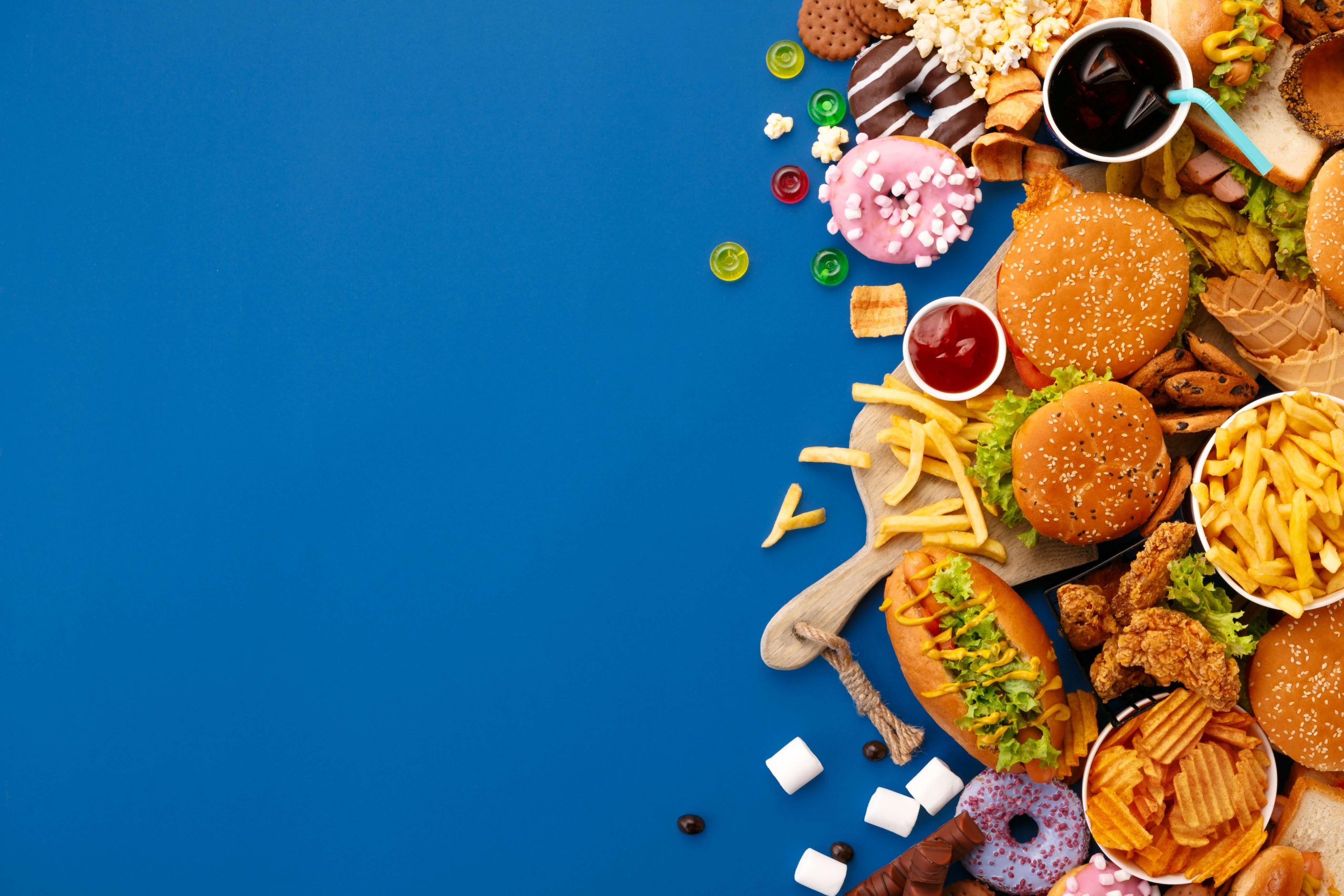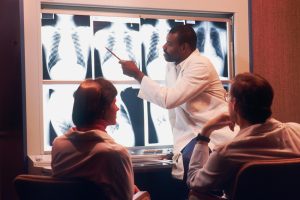Disclaimer:
This article is for information purposes only. Consult with your Primary Care Physician. It is not a substitute for medical advice or treatment. First Seek medical care for your treatment.
Before discussing the article in detail, it is significant to know about blood pressure. What is blood pressure?
When Blood pressure ( BP ) is high the Blood flows more strenuously through the arteries, injuring the walls of blood vessels by exerting vigorous pressure on the tissues of the arteries. Normal blood pressure should be less than 120/80 mm Hg. Diastolic pressure is always lower than systolic pressure.
Blood pressure or hypertension is commonly known as a “silent killer”. Generally, there are no noticeable symptoms until there is visible damage done to your heart, thus keeping most people unaware of their grave health condition. When blood pressure is skyrocketing, it can cause headaches, unsteadiness, breathlessness, and chest pain. Persistent high blood pressure can lead to blindness, dementia, and heart and kidney failure. Almost half of U.S. adults are suffering from high blood pressure. There are two blood pressure measurements:
- Systolic pressure
The upper number depicts the force of the pressure when your heart beats and pumps the blood.
- Diastolic pressure
The bottom number represents the pressure on the blood vessels when the heart muscle eases.
We can control or prevent our blood pressure by simply maintaining a healthy lifestyle and healthy diet.
Certainly, we all love food and love cramming down our favorite meals, but food should not be eaten for the sake of mere taste. We should understand the significance of food for our bodies. The sole purpose of ingesting food is to keep the body healthy and to help it function properly. So it is mandatory to keep a check on what you eat. The chief cause of increased blood pressure is your salt intake. Salt behaves differently on different people. For some people consumption of salt is deadly and in some cases eating salt does not cause any harm to their bodies.
When you take Salt your body preserves sodium. If you take excessive salt, it puts extra pressure on the walls of your blood vessels which elevates your blood pressure. But no need to worry because you can control your blood pressure from soaring high by cutting back or keeping a strict check on sodium-rich foods. Throw away your salt shaker. Food plays a pivotal role in controlling your blood pressure level. You should steer clear of the foods enlisted below in high blood pressure.
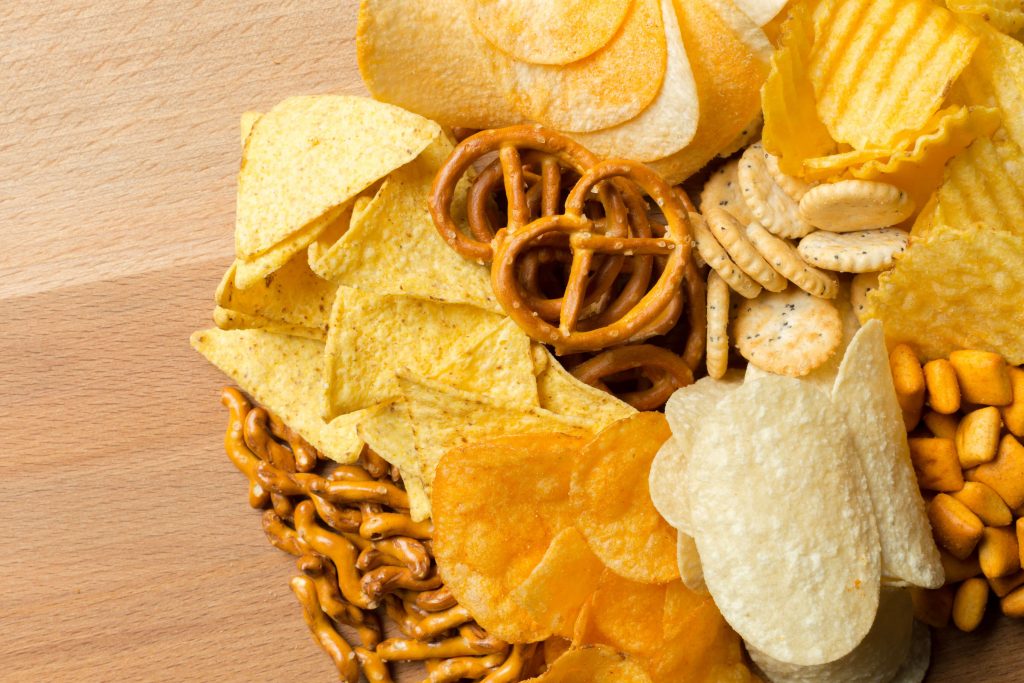
1) Salt-enriched snacks
Undisputedly Potato chips, crackers, or popcorns are crispy goodness; they are heavy in sodium which is why they fall in the category of processed foods. Excess sodium in them is what makes one think twice before consuming them more often. One should be more concerned about taking the required amount of sodium. Taking some sodium helps our body to work properly but excess of it can be devastating for your body.
Thus, one should limit salty snacks or enjoy them once in a while.
- 1-ounce of plain potato chips approximately has 50-200 milligrams.
So, next time when you have high cravings go for minimum or no sodium nuts, seeds, chips, pretzels or snacks. You can also eat fresh carrots or celery for satiating your cravings.
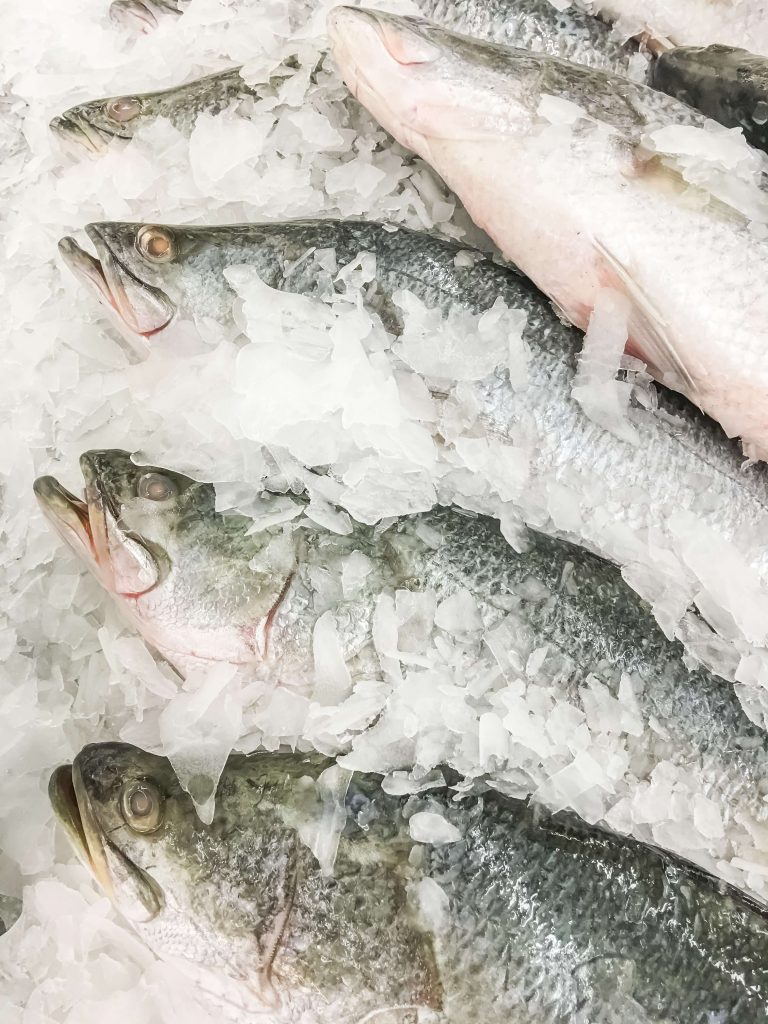
2) Frozen foods
Frozen foods are fast and handy but they come at a very heavy cost. Frozen foods like frozen pizza, burgers, processed meat, french fries, and canned foods are rich in sodium and fats. Frozen food products have 700-1800 gms of sodium in one serving, which is approximately your daily advised sodium intake, which is why it is best to avoid or limit such foods. Frozen food or frozen seafood is loaded with salt. Frozen thick crust pizza with various scrumptious toppings and cheese is rich in sodium. Always go for freshly cooked food in that way you can monitor your sodium intake. But if by any means you need to eat something fast and easy, once in a blue moon you can go for the foods with 600 milligrams of sodium or less.
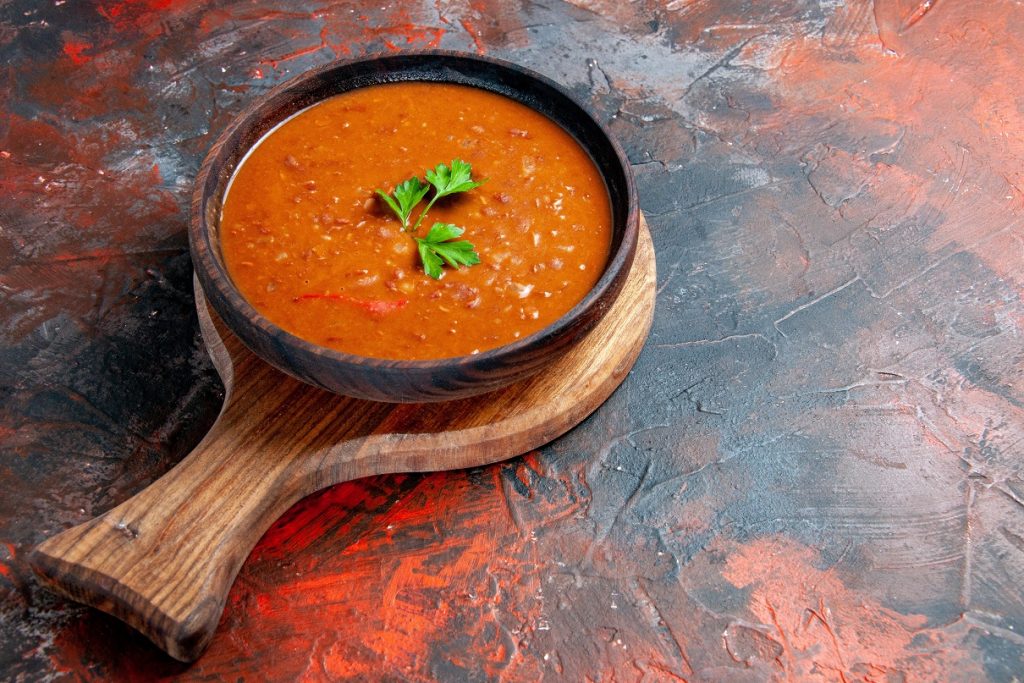
3) Readymade soup
A hot bowl of soup on a cold day is irresistible but it should be sternly avoided if you have high blood pressure because it is also loaded with sodium. American heart institute states that a premade soup contains sodium from 700 to 1,260 milligrams which exceeds the recommended daily amount of sodium. The best is to avoid premade soup and make it yourself with low sodium. You can definitely add spices and herbs for more flavor.

4) Cheese
Since we know that cheese is rich in sodium and fat so, it can cause more damage to people suffering from high blood pressure. You can add Small amounts of cheese to your regular diet. There are various types of cheese. Low-sodium cheese, for instance, swiss, ricotts, goat, and fresh mozzarella are good options. Processed cheese like American and cottage cheese is high in sodium. Half a cup of normal cottage cheese contains 455 milligrams of sodium.
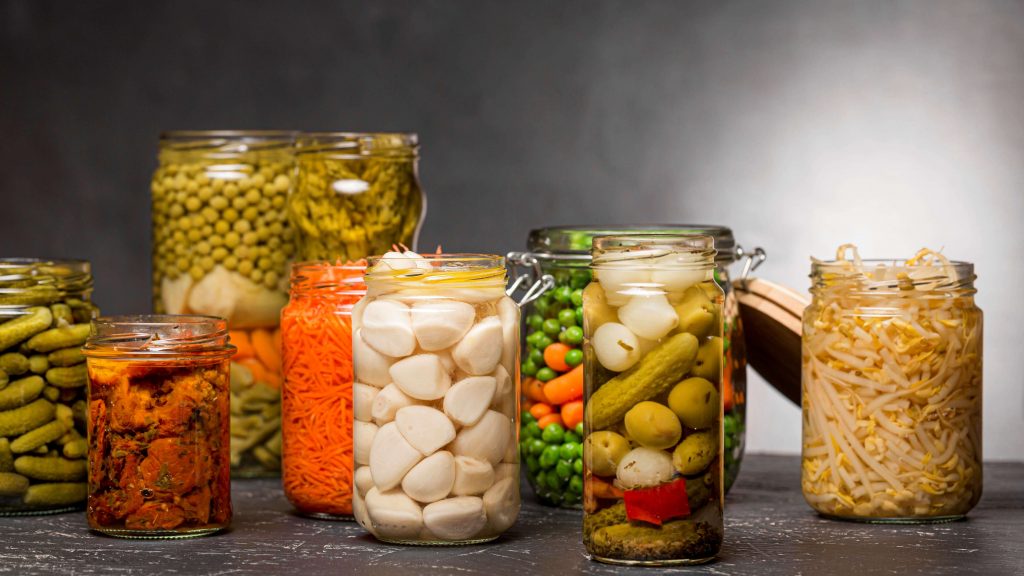
5) Pickle and pickled foods
Pickles are finely sliced vegetables and fruits fermented in striking amounts of salt, sugar, and vinegar. We all love the tangy and sour pickles as they add tremendous flavor to your bland food. But you should think twice before consuming mango pickle with your paratha or food if you are suffering from high blood pressure.
Kimchi, sauerkraut, pickled or brined foods are loaded with sodium. According to research 3 ounces of pickle juice has 900 milligrams of sodium. Try pickles made from citrus fruits like lemons, limes, oranges, pineapple juice, or vinegar. They add a more citrusy and tangy flavor with less sodium.
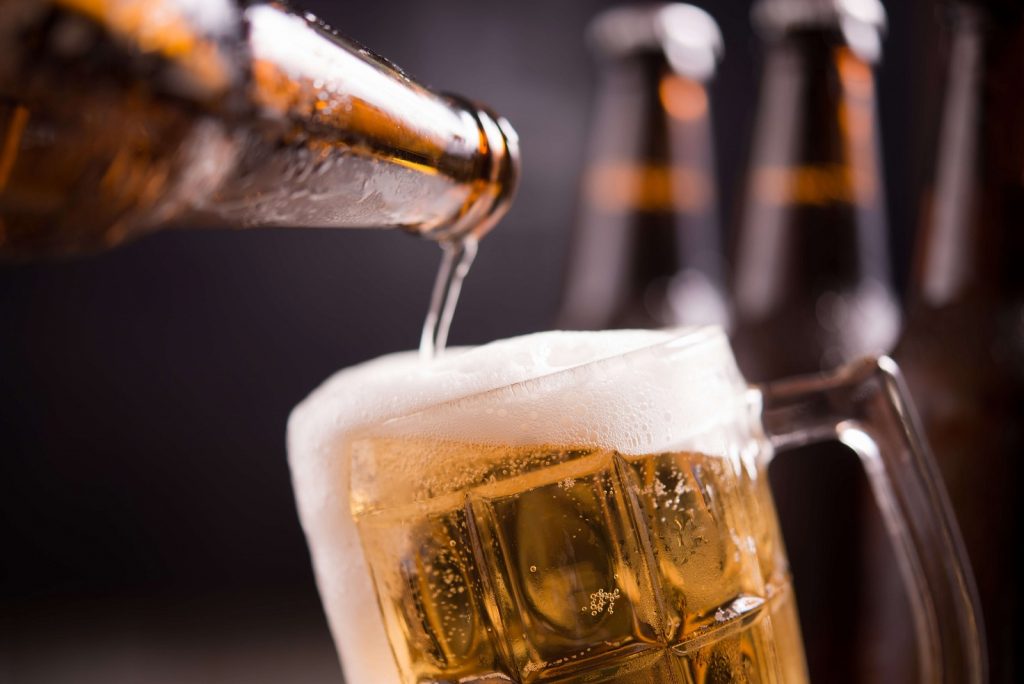
6) Nix alcoholic beverages
Alcohol, wine, or beer if consumed in large amounts can become the bane of your life. Alcohol consumption along with other various diseases also raises your blood pressure. Try your best to avoid alcohol and if it is unavoidable, strictly restrict yourself to a single drink a day. Men should not consume more than two drinks in a day and women should stick to one. Even that too is like pushing the boundary.
If you are a heavy drinker and you stick to moderate drinking then you can lower your top readings by 5.5 mm Hg and bottom numbers by 4 mm Hg. Note that a drink is 12 ounces of beer, 5 ounces of wine, or 1.5 ounces of 80-proof distilled spirits. Avoid binge drinking because it is injurious to health. Alcohol has calories which can result in weight gain. Limit alcohol consumption to manage your blood pressure readings.
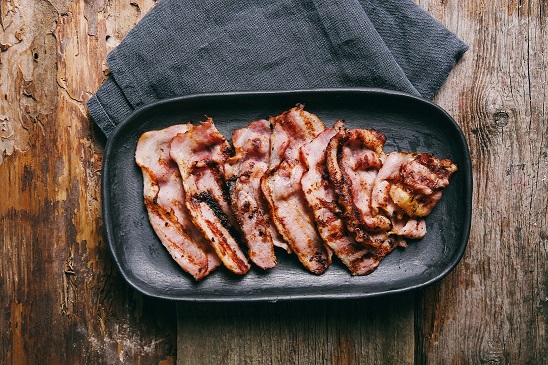
7) Processed meat
Processed meat conveniently makes it to our list because it is rich in fat and sodium, which is why it is so tasty. Undoubtedly Processed meat is trouble-free and tasty but it elevates blood pressure. Lunch meat contains approximately 750 milligrams of sodium per serving which makes up to 6 lean slices. If combined together a Slice of bacon contains 90 gms of fat and sodium. Numerous other processed types of meat are also sodium-rich for instance; hot dogs, corned beef, sausage, pork, ham hocks, and spareribs. In a nutshell processed food contains a huge amount of salt to preserve the flavor which is not blood pressure friendly.
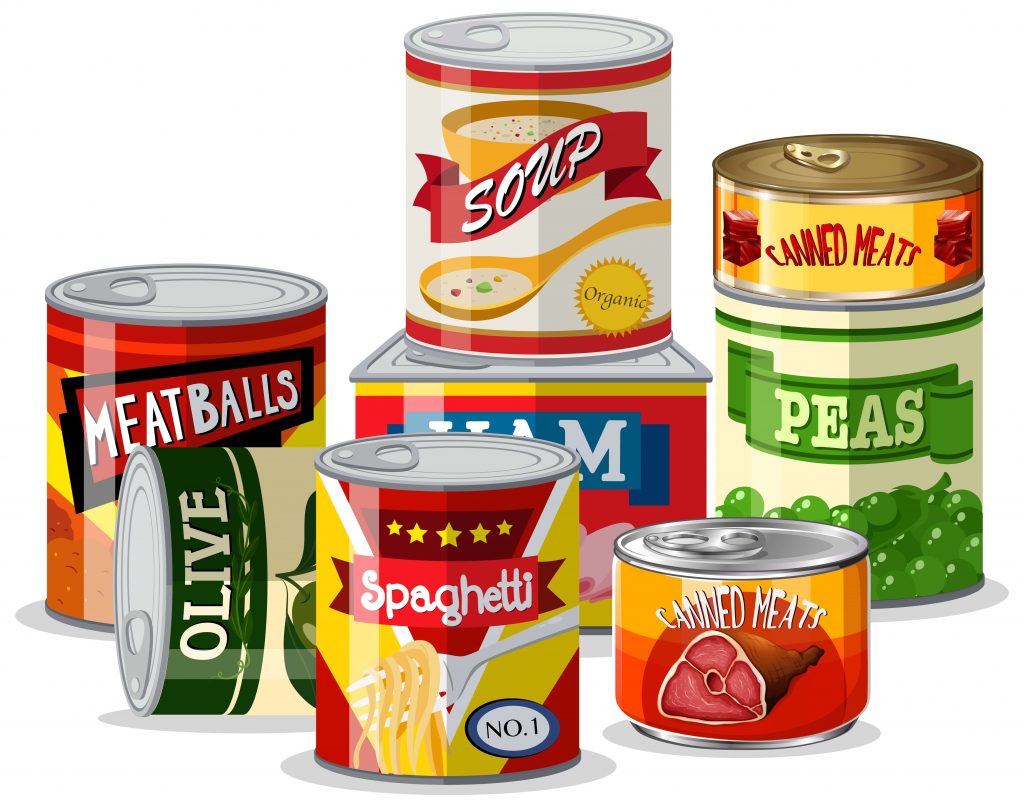
8) Canned foods
Canned foods are the main offenders because they raise blood pressure. According to the latest research, there is one more concerning reason to avoid canned products, that is the can of canned foods has a chemical called bisphenol-A or BPA. Drinking from a can skyrocket your blood pressure by 16 times as compared to drinking from a glass.
The BPA in cans can affect the heart, and human bodily functions and can be the reason for infertility.
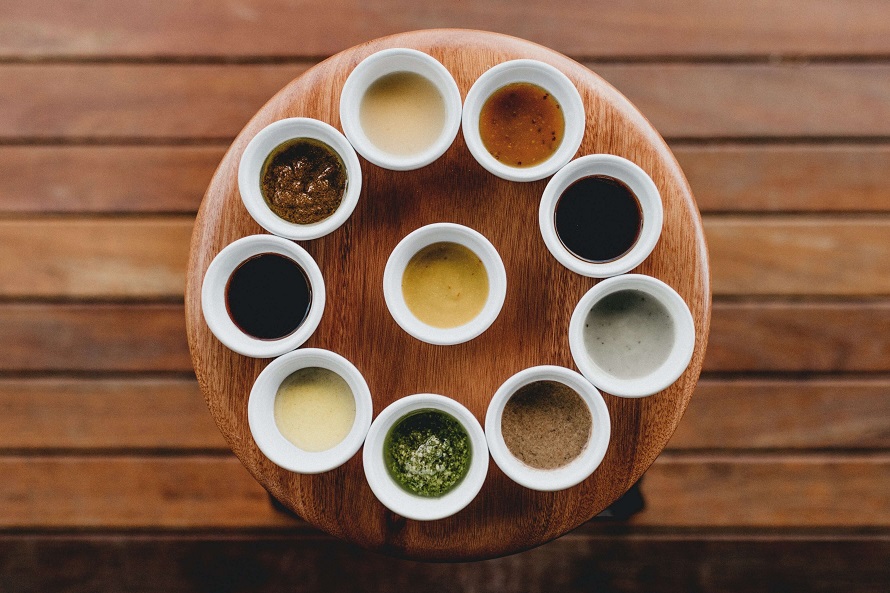
9) Condiments and sauces
Ketchup, soya and chili sauce, salad dressings, barbecue sauce, steak sauce, pasta sauce, pizza, teriyaki sauce, marmite, and sour cream are all rich in sodium. Instead of using canned tomatoes or tomato sauces, you should go for fresh tomatoes. ¾ cup of canned tomato juice has 600 milligrams of sodium. Do not use condiments as your salt substitute. It is better to use various herbs, spices, lemon juice, or vinegar for extra flavor. Next time you go shopping try to find a low-sodium substitute.
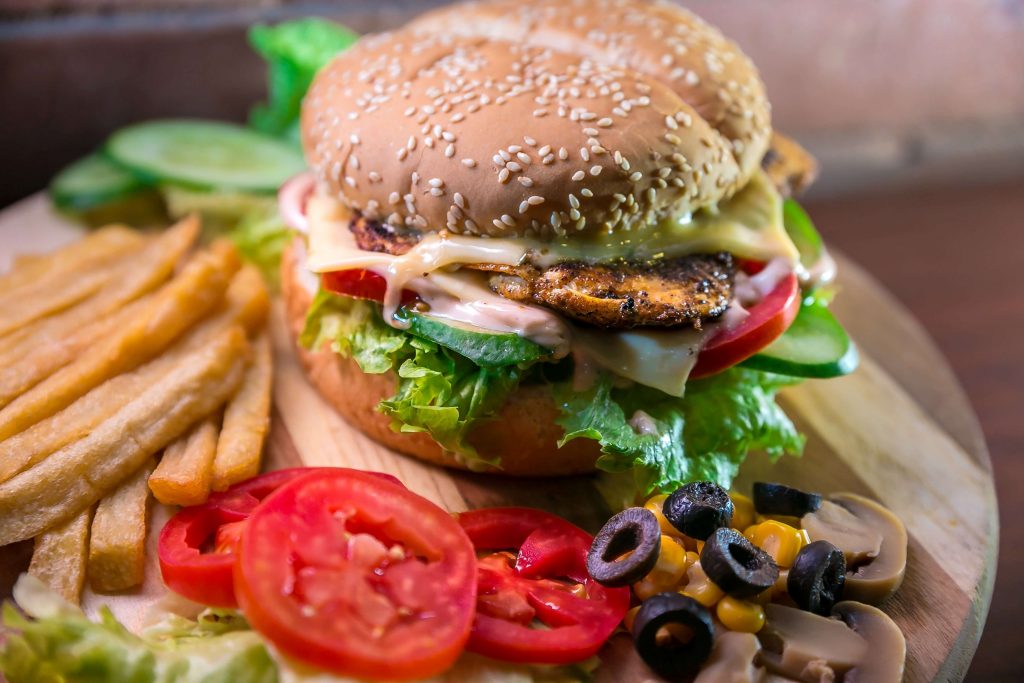
10) Fast foods
If you are suffering from high blood pressure then fast food is a big NO. Fast food is infamous for being detrimental to your health, mainly due to heavy amounts of fat, salt, and calories. The fats and sodium in fast food not only raise your blood pressure but also contribute to weight gain and high cholesterol. Fast food is processed and frozen food with loads of oil and salt. Fast foods like fish and chips, sandwiches, hamburgers, fried chicken, pitas, chicken nuggets, pizza, tacos, and hotdogs should be avoided to maintain your blood pressure level.
Research done in the past reinforces the significance of keeping a healthy diet along with a healthy lifestyle. Limit the consumption of sodium and calorie-packed processed foods.

